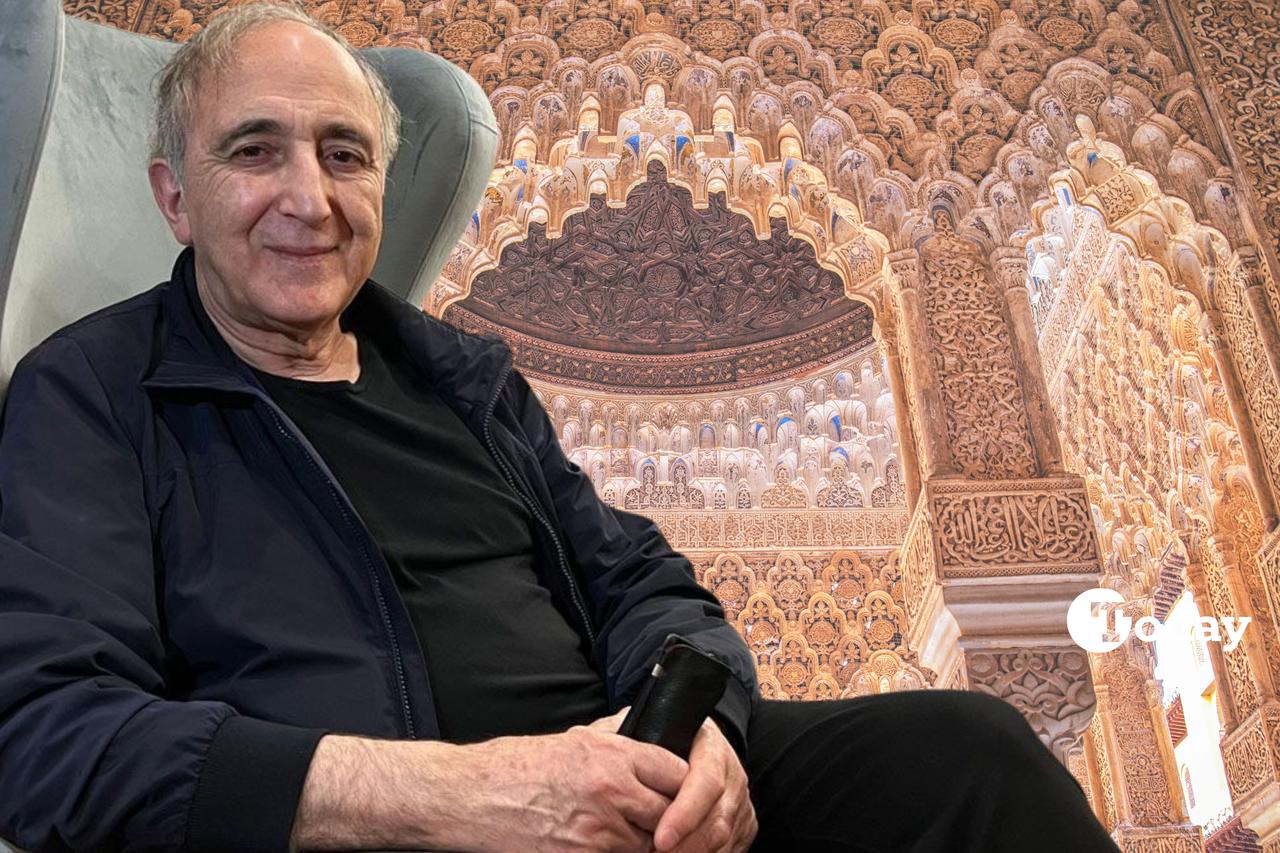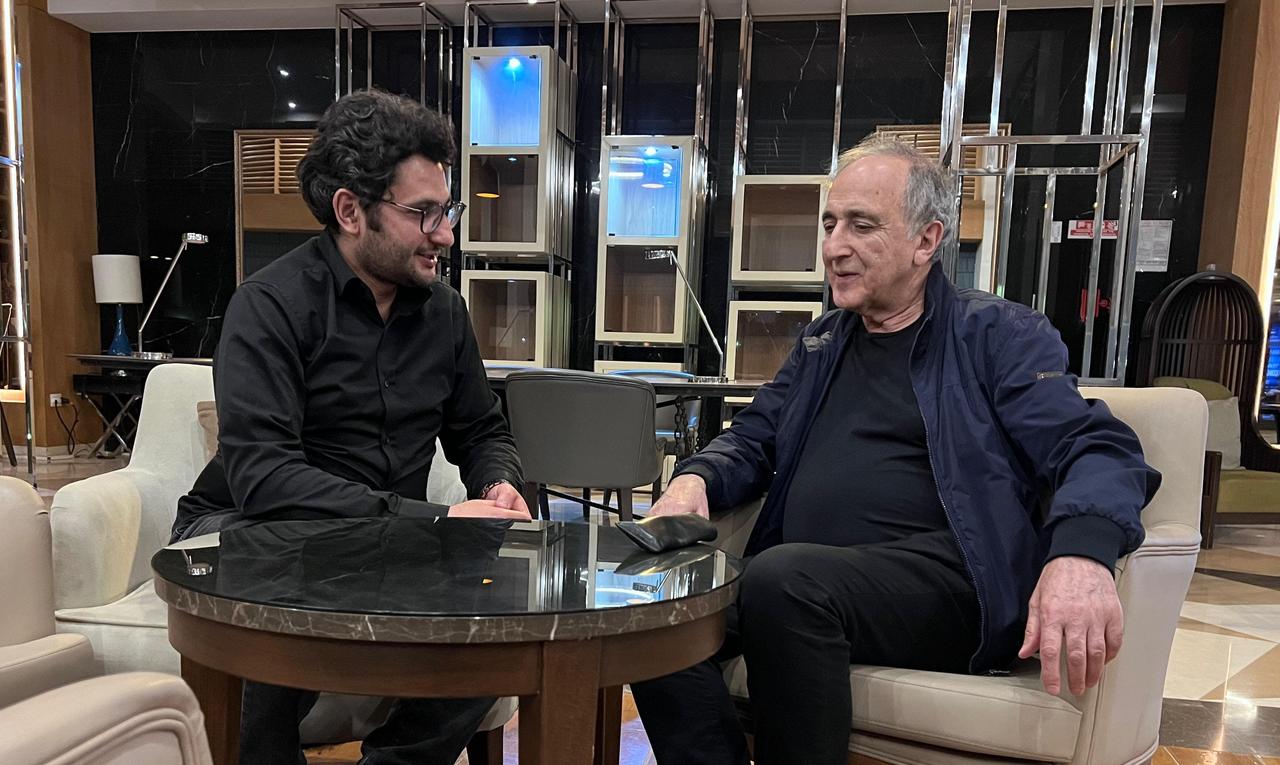
Bensalem Bouabdallah, an Algerian director living in England, is a filmmaker who has almost entirely dedicated himself to Andalusia.
Creating documentary films about the Umayyad Andalusian civilization that once ruled Spain and influenced the entire world, Bouabdallah offers an extraordinary and sometimes "contrarian" perspective. He draws particular attention to the Great Mosque of Cordoba—now a cathedral—with his work "Cordoba".
With roots tracing back to Andalusia, Bouabdallah visited Konya within the scope of the Sufi Cinema Festival, where we had the opportunity to meet with him.
You've taken on various roles in cinema, from acting to directing. How did your journey in the film industry evolve?
I grew up in a traditional Muslim family in the city of Tlemcen during the 1950s, a period when French colonialism continued in Algeria. At the age of 12, after watching the film "Samson and Delilah" in a theater, I decided to become a filmmaker. I first studied theater in Paris, then pursued film education in London. After graduation, I began to wonder what I should do. I couldn’t make films about British history and culture—they already knew that well! At that time, not enough films were made about the Islamic world. Naturally, I wanted to focus on Islamic culture and civilization.
So why did you choose to do this through documentary films?
While I was in Paris, I made two short fictional films. However, after moving to England, I gravitated toward documentary cinema because it is an impressive way of filmmaking. I have been working on documentary projects since the 1980s.
What did it mean to be a Muslim filmmaker in London?
At the beginning, there was no tradition of the type of films I was making. So, it was quite a challenging arena. However, England is probably the most comfortable place for Muslims in Europe.

Andalusia occupies an important place in your works. Was there a special reason for you to focus on this civilization, which once influenced all of Europe from Spain?
In my childhood, my elders constantly told me that we came from Andalusia, from Spain, and often spoke about it. I grew up with stories and anecdotes about Andalusia. Moreover, Andalusian songs and melodies resonated in the city I lived in, and the Arabic dialect spoken there was similar to the Andalusian palace dialect.
Years later, I discovered that the names of my ancestors were inscribed in the Alhambra Palace in Granada. I do not claim to be a prince, but I have a heritage rooted in Andalusia.
Andalusia is as important for world culture as it is for your family, isn’t it? What would you say?
Andalusia was a multicultural state that granted freedom to those who contributed to scientific advancement, regardless of their ethnic identity. Some have even described Andalusia as a "religious democracy." European historians claim the Renaissance began in Italy.
In fact, it started in Spain in the 13th century. Toledo was the first city the Catholics took from Andalusia. There, Europeans began translating all Arabic works of science, art, and philosophy, spreading them to other countries. This is how the Renaissance in Italy began.
What do you think about the Andalusian heritage in Spain?
Spanish historians opposed to Islam did everything they could to erase the Andalusian heritage and succeeded. Until the early 20th century, even the Alhambra Palace was in a sorrowful state; one part was demolished, while the other housed the homeless. In fact, all mosques were converted into churches or cathedrals. Some cities were entirely destroyed. However, from the 20th century onward, the Spanish began to realize the value of Andalusian works and restored them for economic reasons. The rediscovery of Granada by European Romantic writers like Victor Hugo in the 19th century also had an influence.
You seem to have devoted your life as a filmmaker to Andalusia. Is this a mission for you?
Yes, we could say that making films about Andalusia is a sort of mission for me. I do this sincerely. Today, the entire world acknowledges the influence of Andalusia on them.
Do you have plans to make fictional films about Andalusia?
God willing, I have much larger projects in mind. I plan to make a six-part fictional series about the Moriscos, the Muslims expelled from Andalusia. We definitely need to talk more about Andalusia. Because after Andalusia, the Inquisition in Spain carried on into modern times. The Inquisition strategy is still being applied today in Bosnia, China, India, and Gaza. Even in European countries like France today, headscarves are banned for women. Just as in 15th and 16th century Spain, Arabic inscriptions and religious symbols are being erased.